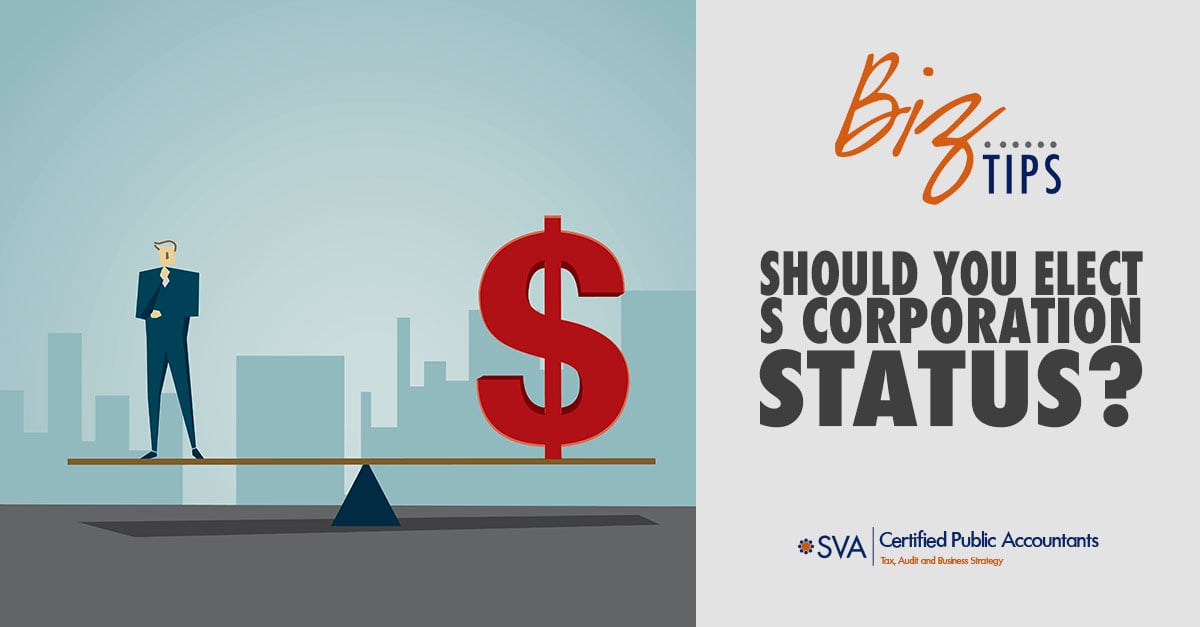Operating a business as an S corporation may provide many advantages, including limited liability for owners and no double taxation (at least at the federal level).
Self-employed people may also be able to lower their exposure to Social Security and Medicare taxes if they structure their businesses as S corporations for federal tax purposes.
But not all businesses are eligible — and with changes under the Tax Cuts and Jobs Act, S corps may not be as appealing as they once were.
Compare and Contrast
The main reason why businesses elect S corp status is to obtain the limited liability of a corporation and the ability to pass corporate income, losses, deductions, and credits through to shareholders. In other words, S corporations generally avoid double taxation of corporate income, once at the corporate level and again when it’s distributed to shareholders. Instead, tax items pass through to the shareholders’ personal returns, and they pay tax at their individual income tax rates.
(Download Video Transcript)
But double taxation may be less of a concern today due to the 21% flat income tax rate that now applies to C corporations. Meanwhile, the top individual income tax rate is 37%. S corp owners may be able to take advantage of the qualified business income (QBI) deduction, which can be equal to as much as 20% of QBI.
To assess S corp status, you have to run the numbers with your tax advisor, and factor in state taxes to determine which structure will be the most beneficial for you and your business.
S Corp Qualifications
If you decide to go the S corp route, make sure you qualify and will stay qualified. To be eligible to elect to be an S corp or to convert, your business must:
- Be a domestic corporation,
- Have only one class of stock,
- Have no more than 100 shareholders, and
- Have only “allowable” shareholders, including individuals, certain trusts and estates. Shareholders can’t include partnerships, corporations or nonresident alien shareholders.
In addition, certain businesses are ineligible, such as financial institutions and insurance companies.
Base Compensation on What’s Reasonable
Another important consideration when electing S status is shareholder compensation.
One strategy for paying less in Social Security and Medicare employment taxes is to pay modest salaries to yourself and any other S corp shareholder-employees. Then, pay out the remaining corporate cash flow (after you’ve retained enough in the company’s accounts to sustain normal business operations) as federal-employment-tax-free cash distributions.
(Download Video Transcript)
However, the IRS is on the lookout for S corporations that pay shareholder-employees unreasonably low salaries to avoid paying employment taxes and then make distributions that aren’t subject to those taxes.
Paying yourself a modest salary will work if you can prove that your salary is reasonable based on market levels for similar jobs. Otherwise, you run the risk of the IRS auditing your business and imposing back employment taxes, interest and penalties. We can help you decide on a salary and gather proof that it’s reasonable.
Consider All Angles
Contact us if you think being an S corporation might help reduce your tax bill while still providing liability protection.
SVA's professionals can help with the mechanics of making an election or making a conversion, under applicable state law, and then handling the post-conversion tax issues.
© 2019

